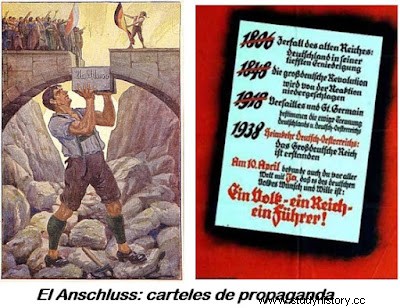 Despite his failed attempt to annex Austria (to which I have devoted another entry) , Hitler did not stop planning the annexation of this country. On February 12, 1938, Hitler summoned the Austrian Chancellor Von Schuschnigg to his headquarters in Berchtesgaden, there, after intimidating him, he demanded that he sign a series of commitments between them on Austrian support for German foreign policy and the Appointment of Seyss-Inquart, head of Austrian Nazism.
Despite his failed attempt to annex Austria (to which I have devoted another entry) , Hitler did not stop planning the annexation of this country. On February 12, 1938, Hitler summoned the Austrian Chancellor Von Schuschnigg to his headquarters in Berchtesgaden, there, after intimidating him, he demanded that he sign a series of commitments between them on Austrian support for German foreign policy and the Appointment of Seyss-Inquart, head of Austrian Nazism. 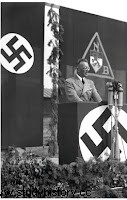 |
On his return to Vienna, on 9.03.1938, Von Schuschnigg announced the calling of a plebiscite for the population to decide on Austrian independence (a free, independent, social and Christian Austria). Seyss-Inquart conveyed to him Hitler's wish, actually an order, that the plebiscite be suspended. The German army occupied some points in Austria two days before the date set for the plebiscite. The popular consultation had to be suspended.
Faced with pressure from Hitler, Seyss-Inquart was appointed Chancellor. From his new position, he called for German troops to occupy the country. On March 12, 1938, they occupied all of Austria without encountering resistance. The next day the Anschluss was announced.
" I have fulfilled the greatest mission of my life. As Führer and Chancellor of the German nation, I report to History that my country is now incorporated into the German Reich." Hitler's speech in Vienna, on the 14th.
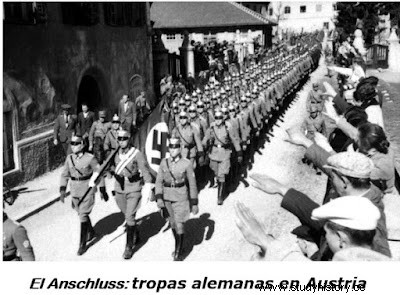
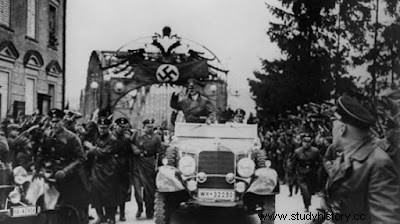 |
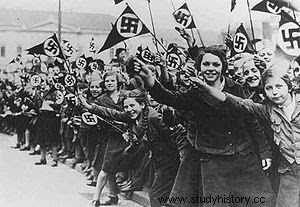 |
The powers did not react to this new coup by Hitler. Great Britain announced that resistance would expose Austria to dangers from which the British army could not free her. French passivity, in the midst of a deep internal crisis, has been explained by a lack of military force, although the Frenchman Briand even declared that the Anschluss was war. Italy kept silent, which caused the friendship between Italy and France to break. Czechoslovakia and Poland remained indifferent. Hitler had pulled the diplomatic strings well, had signed a friendship treaty with Romania, the protocol for the constitution of the Rome-Berlin Axis, the Anti-Comintern Pact (to which Italy, Hungary, Manchukuo, Spain joined) and had obtained assurances that Mussolini would not oppose the Anschluss. On April 2, the Western powers accepted the fait accompli.
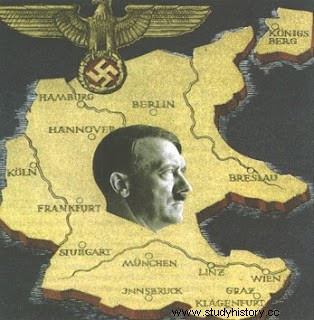
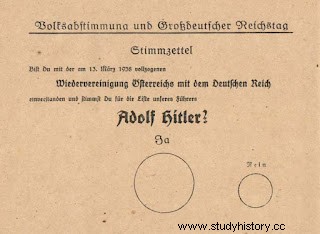 The announcement of the Anschluss was received in Germany with great joy, it was the beginning of Greater Germany and, the opening of German imperialism to the Balkans. Hitler's popularity was at very high levels.
The announcement of the Anschluss was received in Germany with great joy, it was the beginning of Greater Germany and, the opening of German imperialism to the Balkans. Hitler's popularity was at very high levels. To legitimize this action, Hitler called a referendum in April 1938. The result was mostly favorable to the union with Germany (more than 99% of the votes). The ballot (in the image) speaks for itself about the manipulation of the query
